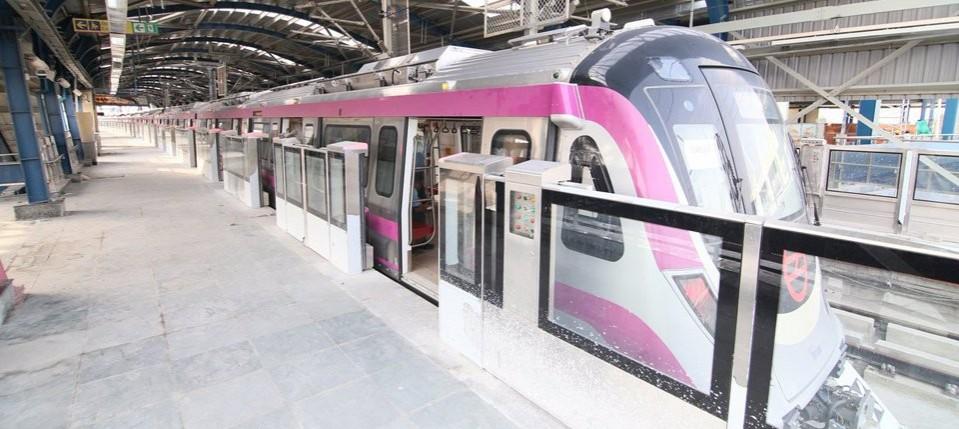The Delhi Metro Rail Corporation (DMRC) has been facing a financial stress with the losses to the tune of Rs 1,500 crore during the heydays of the pandemic induced lockdown. Metro operations were halted during lockdown for a period of roughly six months, which drastically affected revenue from passenger travel.
At the same time, operating expenses including Operation and Maintenance (O&M) costs had to be continuously paid for the upkeep of the metro network which spans 285 stations and a total track length of 389 km. Additionally, there had been a decline in the non-fare revenue garnered from advertisement as well as shop rentals for the months when metro operations had been suspended.
The DMRC has around 400 retail outlets at its stations. Owners of these retail shops have expressed their inability to pay rent to the DMRC on account of no sales. Even now, when the metro services have been resumed, it has been done with sub optimal capacity on account of following strict social distancing norms.

DMRC loans
In addition, the Delhi Metro had taken a soft loan of Rs 35,198 crore from Japan International Cooperation Agency (JICA) at a concessional rate of 1.2-2.3 per cent for 30 years. For the financial year 2020-21, DMRC is required to pay Rs 1,242.8 crore of which Rs 434.1 crore is the interest while Rs 808.7 crore is the principal amount. However, till July 2020, DMRC had been able to pay only Rs 79.2 crore as interest payment.
In the wake of financial distress, the DMRC has turned to seek financial assistance from the Central Government, Delhi, Haryana and Uttar Pradesh governments. It is learnt that the DMRC has written to the Central and state governments requesting financial help. It is yet to be seen whether the Central and the state governments come to the rescue of the DMRC since they too are reeling under high fiscal deficit.
This is for the first time that the Delhi Metro is facing operational losses. Since 2002, the DMRC has never faced an operational loss owing to efficiency in operations and world class service standards.

To tide over its financial stress, the Delhi Metro is brainstorming innovative methods of revenue generation. The DMRC is following a two-pronged strategy of curtailing expenditure wherever possible and deferment of non-essential expenditure. It has decided to reduce perks and allowances of its employees to about 50 per cent in the coming financial year and also requested the Centre to defer the payment of its loan instalment to JICA for the year 2020-21.
A Parliamentary Committee report had suggested innovative methods of revenue realisation for the DMRC. The average non-fare revenue of Metro, across the world, comprising of revenue from advertisements, property leasing and consultancy is close to around 40-50 per cent of total traffic revenue. However, for the DMRC, non-fare revenue accounts for only 15 per cent, which is abysmally low.
In order to tackle this challenge, the committee suggested leasing of existing assets i.e. track and rolling stock, leasing of commercial spaces at stations, advertisement fee, parking fee as well as revenue generation by levying a cess on residential property development of nearby areas which have seen enhancement in value owing to metro operations.
(With inputs from IANS)














